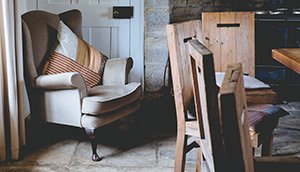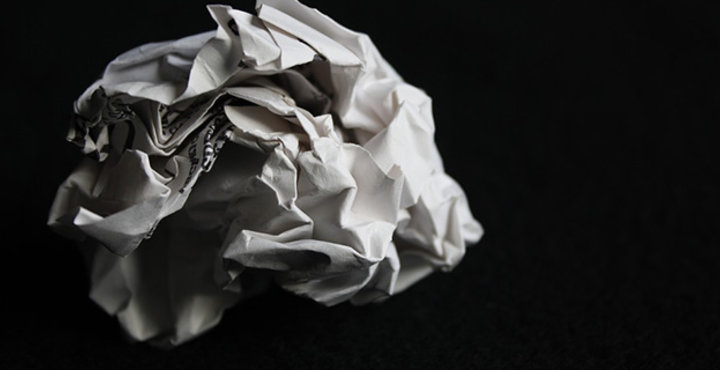(+25 Prompts to Get You Started)
Some years ago . . .
I was sitting on my rooftop patio in Taipei with an eclectic group of bohemian comrades, drinking near-toxic Taiwanese beer and talking about our artsy life ambitions. A typical group of aspiring writers, artists, and musicians, we spent many scorching afternoons and boozy nights pining after self-made creative careers. Our posse (think beards, guitars, TOMS slippers, and mala bead necklaces) talked endlessly about our quest for artistic integrity and the need to create, but few of us could actually claim an active work ethic.
On this particular evening, an outsider had joined our group. He didn't fit the usual profile—he was uncomfortably overweight, made a disturbing number of fart jokes within the first ten minutes of arrival, depleted our stock of beer almost immediately, and cat-called women from the rooftop vantage point. We were unprepared, then, when he called us out on our artsy laziness with surprising lucidity.

"So you're a writer?" he drawled.
I puffed my chest appropriately. "Writing is what I identify with. It's what I want to do, all the time. It's like a second pulse."
"What are you writing?"
"Well, I have a bunch of projects in mind," I wavered, but held it together. This guy wasn't exactly artistically intimidating.
"So you're not actually writing anything. Like right now."
"Well . . ." I hesitated, reluctant to admit he was poking at my lack of focus with unnerving aim. He crushed yet another beer can and let it clatter to the terracotta tile, lit his sixth cigarette of the evening, and—I noticed—pocketed my lighter.
"That's dishonest. You can have all the talent in the world, but unless you're actually writing, you're not a writer. If you're not producing and showing art, you're not an artist. I have a bass guitar at home, but I'd be a liar if I said I'm a guitarist."
I wanted to argue, but what he'd said was accurate. I had a book in the works and a hodgepodge of short stories. But somewhere along the way (specifically, after Chapter 5 of said book), my reservoirs of creative energy had dried up. How could I get back into the routine of writing when my ideas were at a standstill? What happened next was accidental and the solution to my problem.
I bought a journal.
I started by just writing out my frustrations (possibly fueled by vodka and Henry Miller's Rosy Crucifixion trilogy). The process was immeasurably cathartic. Soon I was setting aside time to journal every day, and the rhythm of writing and the exercises of introspection carried me to pen new chapters of my book. To all writers stumped, bored, or determinedly too busy to set pen to paper, 15 minutes per day of simple journaling can have a tremendous impact.
What are the benefits of journaling?
- You release negativity that may be keeping you from writing.
- You develop discipline. In careers where no one sets your hours for you, routine is critical.
- You have a space to record those random ideas and bursts of inspiration before they're gone.
- You can play with words and ideas without obligation to a product. Whatever enters your journal will never be censored, cropped, tweaked, or critiqued. As you become more relaxed, you'll find you have more confidence to be daringly creative or touch upon topics you would otherwise consider taboo.
- You improve with practice. The more you write, the more you learn what works and what doesn't—naturally.
- You connect intimately with your own experiences. Writing about your own life allows you to break down complex situations into logical pieces, which can improve your storytelling, character, and plot development abilities.
- You capture living moments in a personal, original way and learn which of these moments have impact.
- You gain the confidence you were missing to reassert yourself over stagnant projects.
How can I get started?
1. Set a routine. Developing a habit will help you continue journaling even when you're inclined to be lazy. It could be a few minutes when you first wake up or before going to bed, during your lunch break at work, or on a daily commute. The habits that stick are those that include a reward; consider getting up early to journal and rewarding yourself with a hot cup of coffee. I take mine with cinnamon.
 2. Designate a workspace. You have more flexibility here than the workspace you use for formal writing projects, but the purpose is ultimately the same: you should have a space or environment that signals to you that it's time to write.
2. Designate a workspace. You have more flexibility here than the workspace you use for formal writing projects, but the purpose is ultimately the same: you should have a space or environment that signals to you that it's time to write.
3. Choose materials that bring you pleasure. This is important! You should enjoy every step of journaling, and a big part of that comes down to what you're using to write. It could be a paper notebook and perfect pen combo, an online blog, or a journaling app like Penzu or Day One.
4. Be flexible in form. Journaling doesn't have to be a day-to-day summary; consider alternatives like a dream journal, ideas journal, travel journal, or freewriting journal. Feel like sketching to add to what you've written? Go for it!
5. Concentrate on process rather than product. This is your time to write freely; it's about getting the words out and exploring intimate situations, not making something to market.
Writing Prompts
Need a boost to get you started? These prompts should get you into the rhythm of writing. Happy journaling!
- What made this day unique?
- Did you have any meaningful conversations today? What did they make you think about?
- When did you feel most alive today? What made you feel this way?
- What would you like to change about yourself or your life? How could you bring about this change?
- What brought you worry today? How did you deal with it?
- Describe someone you miss.
- Describe a memory with which you associate a powerful emotion.
- Describe a time you felt you had to prove yourself to someone.
- Describe an opinion you once held that you now disagree with. What made you change?
- Whom do you most wish you could talk to? What would you talk about?
- What would you do if money were no object?
- Describe an experience you've had in a foreign place.
- What makes you feel powerful? Powerless?
- What scared you as a child?
- Describe an experience that helped shape your outlook on life.
- Describe an image that is comforting to you.
- How did you imagine yourself as an adult when you were a child?
- Describe your earliest memory.
- Do you have any recurring dreams? What emotions do your dreams elicit?
- Describe a memory associated with a particular smell.
- Describe a memory associated with a particular song.
- Describe a memory associated with a particular meal.
- Describe the view out your window.
- Describe a misconception people often have about you. Why do you think this is?
- Write as if you were journaling from the point of view of someone you know.
Image source: Thomas Martinsen/Unsplash.com, Annie Spratt/Unsplash.com









